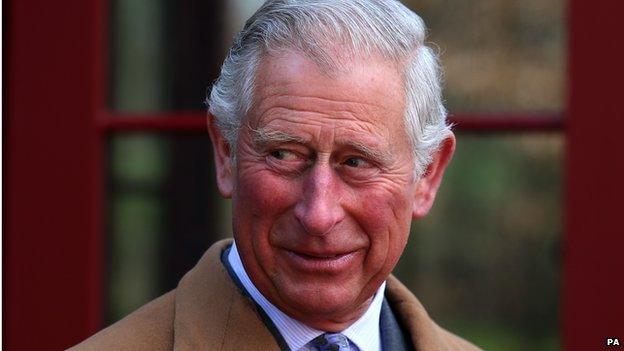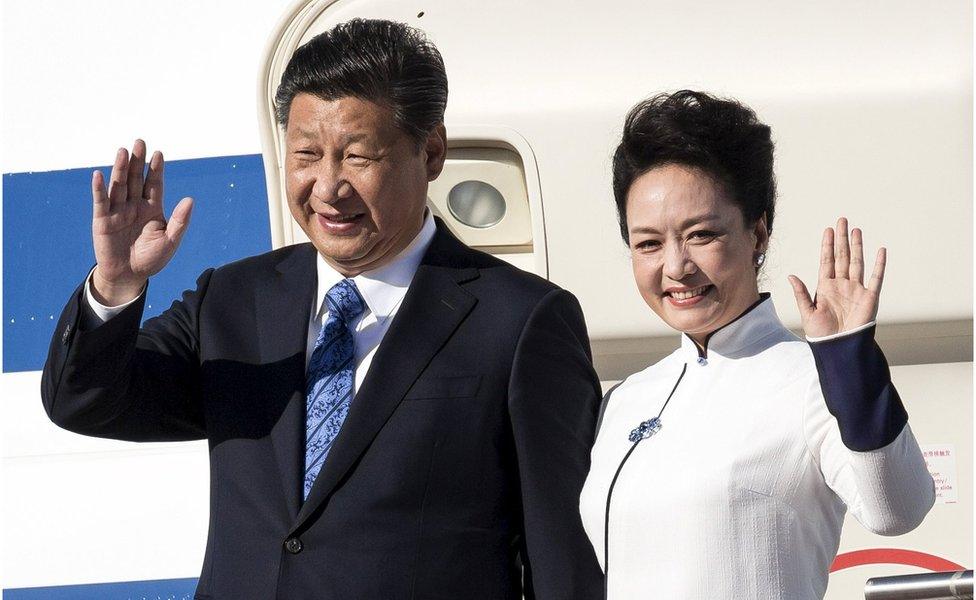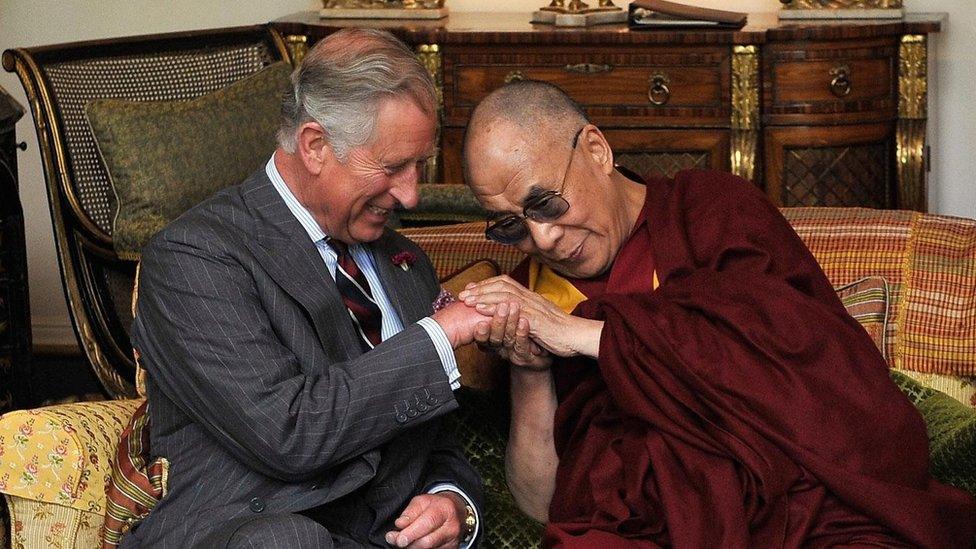Prince Charles and his complex relationship with China
- Published

While the Queen entertains Chinese leaders at Buckingham Palace, Prince Charles will be in Scotland
When, next week, the Queen invites her guests in the Buckingham Palace ballroom to stand and toast the People's Republic of China there will be one notable absentee from the state banquet.
The Prince of Wales. This country's next hereditary head of state. The man yet to set foot on the soil of mainland China.
But this isn't an outright princely boycott. The reality is more complex.
When it comes to actively avoiding showcase set pieces involving Chinese leaders, Prince Charles has form.
He didn't turn up to one in 1999. He chose instead to dine with the then Camilla Parker Bowles.
According to the prince's former aide, Mark Bolland, this was a "deliberate snub" because he didn't approve of the Chinese regime and because he was a great supporter of the exiled Tibetan leader, the Dalai Lama whom he viewed as being oppressed by the Chinese.
Back then, the Daily Telegraph was briefed about the reasons for the prince's boycott of the banquet.

Prince Charles will meet Chinese President Xi Jinping and First Lady Peng Liyuan on several occasions during their visit to the UK
Sixteen years on, no explanation is being offered for his absence next week.
The future king will be in Scotland while, in London, considerable attention will be devoted to the attire of the Duchess of Cambridge and Jeremy Corbyn. It's not often the future queen and the Leader of Her Majesty's Opposition appear in the same sentence about the same subject.
What royal officials are happy to talk about is what they call Prince Charles's "significant involvement" in the Chinese state visit.
He will meet President Xi Jinping and his wife, take part in the formal welcome on Horse Guards Parade, attend a private lunch at Buckingham Palace given by the Queen and, strikingly, have a private meeting with Mr Xi on his home turf, Clarence House.
Such a dialogue, aides say, is far more valuable than any small talk that might be exchanged between courses at the state banquet.
They argue that the prince is investing a great deal of time in events next week. He is showing an impressive commitment, one insisted, given the reservations he has.
The man who once, privately, described some Chinese officials as "appalling old waxworks" has moved. And moved significantly.
In 1999, he disengaged. Now those around him talk about the heir to the throne engaging with China. The role the country could play in tackling climate change hasn't escaped his attention.

The Prince of Wales did not meet with the Dalai Lama when he was last in the UK despite them being 'the best of friends', to avoid tensions ahead of this latest visit
To facilitate this engagement, Prince Charles didn't meet the Dalai Lama when he was in the UK last month.
The Dalai Lama has talked about the pair being the "best of friends". The Chinese view the spiritual leader as a separatist threat.
The absence of any encounter between the Dalai Lama and the prince has paved the way for one between the Queen's son and President Xi.
The Chinese, diplomatically, are keen to focus on the evolving Charles of today, rather than on how he has been presented in the past.
"We tend to look forward", one official said. "We are very happy to be friends with people who want to be friends with us".
The prince - to use much loved modern day-parlance - has been on a journey.
There are royal officials who would wish that he had travelled far enough to enable him to attend a state banquet celebrating a relationship in which the government has invested heavily.
By his absence, Prince Charles clearly wants to send some sort of signal.
One day, when destiny dawns, the king-in-waiting's freedom to send such signals will disappear.